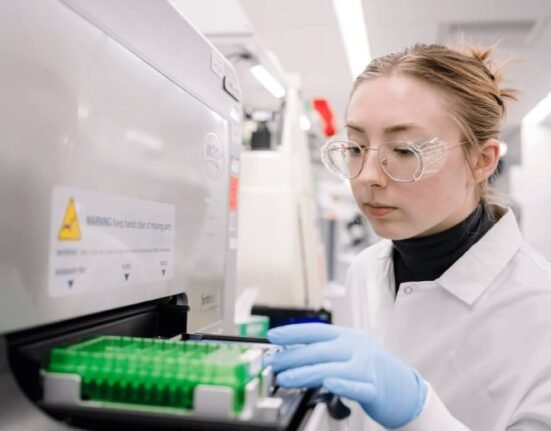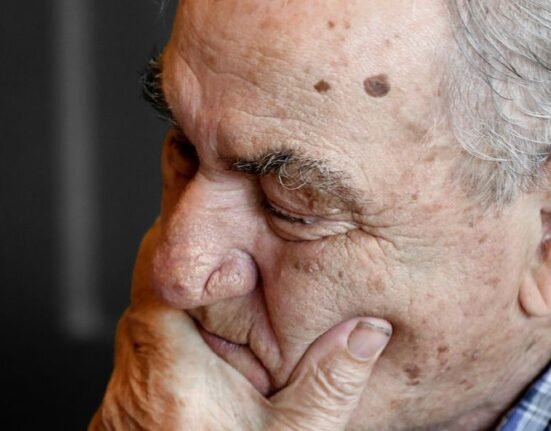HQ Team
July 29, 2025: Dementia patients are diagnosed on average 3.5 years after symptoms are first noticed, and it takes an even longer time for patients with early-onset of the disease, a global study by researchers at the University College London finds.
The study was the first systematic review and meta-analysis quantifying time to diagnosis (TTD) in dementia.
It found that in the pooled meta-analysis of 10 of the included studies, it typically took 3.5 years from the first alert of symptoms to a patient receiving a diagnosis of dementia, or 4.1 years for those with early-onset dementia, with some groups more likely to experience longer delays.
Meta-analytic data were gathered from 13 studies that took place in Europe, the US, Australia and China, on 30,257 participants, with age at onset ranging between 54 and 93 years.
“Although the factors influencing TTD were inconsistent, a younger age at onset and having frontotemporal dementia were consistently associated with a longer interval to diagnosis,” the authors wrote in the International Journal of Geriatric Psychiatry.
‘Global challenge’
The research team investigated the average interval between symptom onset, rated by patients or family carers using interviews or medical records, to the final diagnosis of dementia.
“Timely diagnosis of dementia remains a major global challenge, shaped by a complex set of factors, and specific healthcare strategies are urgently needed to improve it,” lead author Dr Vasiliki Orgeta, UCL Division of Psychiatry, said.
“Other studies estimate that only 50-65% of cases are ever diagnosed in high-income countries, with many countries having even lower diagnostic rates. Timely diagnosis can improve access to treatments and, for some people, prolong the time living with mild dementia before symptoms worsen.”
The researchers found that younger age at onset and having frontotemporal dementia were both linked to longer time to diagnosis. While data on racial disparities was limited, one of the studies reviewed found that black patients tended to experience a longer delay before diagnosis.
“Our work highlights the need for a clear conceptual framework on time to diagnosis in dementia, developed in collaboration with people with dementia, their carers, and supporters,” Dr Orgeta said.
Misleading symptoms
Despite a steady increase in the number of people affected by dementia, only 50%–65% of cases are diagnosed in high-income countries, with rates much lower in low and middle-income settings.
An increasingly recognised view is that a ‘timely diagnosis’ of dementia is preferable to an ‘early diagnosis,’ according to the study.
Dr Phuong Leung, UCL Division of Psychiatry, said: “Symptoms of dementia are often mistaken for normal ageing, while fear, stigma, and low public awareness can discourage people from seeking help.”
The recognition of the condition is challenging for people with dementia, their families and healthcare providers. For a diagnosis to take place, an individual or their family must first identify a problem, link that problem with the disease in question, and decide to seek medical help.
In conditions such as dementia, however, symptoms can often go unnoticed for several years, with cognitive and functional changes often perceived as part of normal ageing or not severe enough to warrant treatment. This often results in delays in help-seeking and access to diagnosis, the authors wrote.
Clinician training
In most Western countries, general practitioners refer patients to memory clinics when dementia is suspected, with referrals often occurring much later, long after the initial onset of symptoms.
“Within healthcare systems, inconsistent referral pathways, limited access to specialists, and under-resourced memory clinics can create further delays. For some, language differences or a lack of culturally appropriate assessment tools can make access to a timely diagnosis even harder,” said Professor Rafael Del-Pino-Casado, of the University of Jaén, Spain.
Dr Orgeta said: “To speed up dementia diagnosis, we need action on multiple fronts. Public awareness campaigns can help improve understanding of early symptoms and reduce stigma, encouraging people to seek help sooner.
“Clinician training is critical to improve early recognition and referral, along with access to early intervention and individualised support so that people with dementia and their families can get the help they need.”








